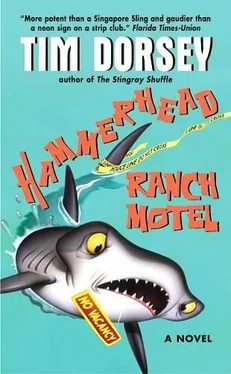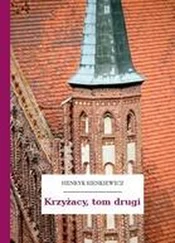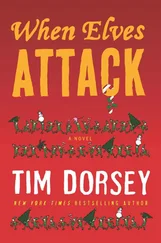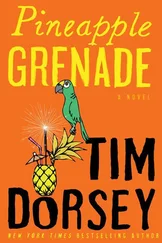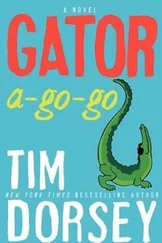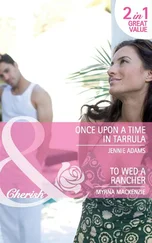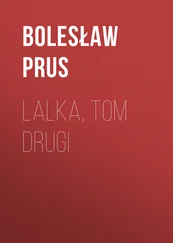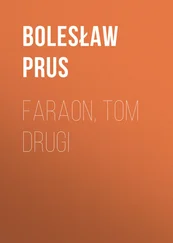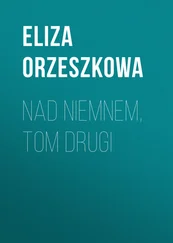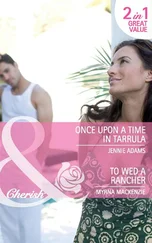A red Alfa Romeo convertible sped east along the shore of the Gulf of Mexico on Route 292, Free’s “All Right Now” blasting from the stereo. Two tall, athletic, college-age women looked up at the plane in the sky and wondered what was going on in those lives.
They were the kind of women who were sexy at a range of a quarter mile, and their loose hair blew and snapped in the wind with a wild coquettishness. They wore big T-shirts over bikinis, and their sunglasses were cheap and cool. They gave off wanton vibrations. The scene could have been from a devil-may-care, coming-of-age independent flick that takes the jury award at Cannes, or maybe a tragedy-strikes-good-kids-in-a-small-town made-for-TV movie that opens with Meredith Baxter Birney staring through drizzling rain on a windowpane, popping pills and wondering when it all started to go so horribly wrong.
The driver was Ingrid Praline, a twenty-one-year-old blonde from Alabama with Scandinavian blood, and in the passenger seat was LaToya Olsen, a military brat from the Bronx.
Ingrid’s hair and cheekbones recalled Ursula Andress in Dr. No. She often braided her hair into pigtails and wore denim bib overalls, and the giant Lolita package gave men hemorrhagic fever. LaToya favored a young Lena Horne; she had the face of an angel, especially the eyes, and she often kept her hair pulled back in a bun, but now it was down.
The two had most recently worked at a Piggly Wiggly in Tuscaloosa, where their boss was a spitting-mean little bumper car of a woman. She hated Ingrid and LaToya on sight because they had potential, and she gave them all of the most undesirable chores. The pair first met on rubber-glove duty corralling an errant bowel movement in the men’s room.
They immediately became inseparable. LaToya was the talkative one and Ingrid was the mental sponge. Ingrid was far from dumb, but she had grown up in a crippling parochial environment. Her mother was Olga Svjörlvladablatt, a hardworking third-generation Swedish immigrant, but her father was Jebediah “Jeb” (“Bo”) Praline, fifth-generation Jim Beam, and global knowledge was viewed in their home as a new strain of syphilis that the line of Praline men had yet to build up a natural resistance against.
In contrast, LaToya had seen it all. She had been everywhere as a Navy kid. Subic Bay in the Philippines; Rota, Spain; and Naples, Italy, before spending her teen years at an intelligence station near London, where she picked up her British accent. She talked a streak about the outside world, and Ingrid could never get enough.
That’s how the nicknames started. After a month, they stopped using their given names altogether. Instead, Ingrid always called LaToya “City,” and LaToya always called Ingrid “Country.”
“ Pensacola is actually older than St. Augustine, but it wasn’t a continuous settlement, so St. Augustine gets all the attention,” said City. “There’s a bar over on the mainland called Trader Jon’s. It’s a freakin’ aviation museum, but Trader is getting on in years and they may have to close it down. The customers are trying to save it…”
They passed a pile of shells outside an oyster shack and a man at the shoulder of the road using a tire iron to take out his frustration on a broken-down Pontiac Firebird. City called attention to the sea oats and boardwalks and dunes of sugar-white sand. “The sand is so white because it’s finely ground quartz.” They passed a “Welcome to Florida ” sign.
City pointed at the beach side of the road. “That’s The Flora-Bama Lounge, home of the Interstate Mullet Toss…”
A young man beat on his Firebird with a tire iron as a red Alfa Romeo blew by. He dropped the iron and began marching east along the beach highway on Perdido Key in a mixture of anger, confusion and fear.
It was the worst day of Art Tweed’s life.
Art had begun the day in Montgomery, Alabama, where he worked as an accountant for the state. His full name was Aristotle “Art” Tweed. He was from a rural family, and his parents had named him Aristotle in the hopes that it would imbue intelligence in the manner that “Biff” would not. His parents raised him good-natured, gullible and tragic, and he felt obligations to the community that were almost quaint in their rarity. He had grown tall and skinny with lots of freckles and a short mop of red hair that was a shocking orange shade more often found on puppets than people.
Art Tweed’s problems started that morning when the phone rang.
“Oncology Department, Montgomery Memorial Hospital. Is this Art Tweed?”
“Yep.”
“Just need to go over some lab results,” said a woman’s voice. “As a follow-up to your physician’s consultation, we received a second confirmation from the lab today that the neoplasm is indeed malignant and inoperable. Do you have any questions?”
Art stopped eating his Cap’n Crunch. “Neoplasm?”
“Tumor, pancreatic.”
“What?”
“This is Art Tweed, twenty-eight years old, correct?”
“Yeah, but-?”
“The Art Tweed who recently had tests at Montgomery Memorial?”
“That was just a routine physical for the state insurance pool.”
“You don’t know you have a tumor?”
“Tumor?”
“Oh my. The chart shows an initial consultation. You never discussed this in person with a doctor?”
“Nope.”
“Whoops,” said the woman. “I think I’ve just made a terrible mistake. It’s my first week on the job. I wasn’t supposed to say anything before you met for counseling with a physician.”
Art fell apart. He began yelling.
“Please calm down,” said the woman. “You’re making this very hard on me.”
“How long do I have?”
“Sir, if you’re not going to-”
“I’m the one with the tumor!”
“Well! Aren’t you the self-centered one! Everything is me, me, me.”
“How much time?”
The woman harrumphed. “Four weeks! I hope you choke on ’em!” And she hung up.
Art had been driving in the Pontiac ever since. No particular route or direction, just a three-hour anxiety meltdown behind the wheel watching his life before his eyes, wiggling at the end of a stick. He ended up at the Gulf of Mexico and made a left. He was finding it increasingly difficult to stay within his lane and freak out at the same time, and he was just about to pull over when the Firebird threw a rod on the Alabama side of Perdido Key.
He crossed the Florida state line on foot and saw a pay phone outside a tavern. He felt in his pocket but only came across paper money.
The tavern was a wooden building that appeared to be falling down and going up at the same time. Old and rickety, but with newer additions built on hodgepodge over the years, and the result looked like it was hammered together by enemies of the owner. Rip Van Winkle walked out the front door and climbed on a Harley. Art caught the door before it closed and went inside The Flora-Bama Lounge.
He spotted the bartender at the far end of the place and headed for him as he pulled ones from his wallet. Early Aerosmith-the good stuff-was on the juke-“Take me back to south Tallahassee…down cross the bridge to my sweet sassa-frassy…” Art told the bartender his car was history and he needed quarters for the phone.
The bartender was making change when Art noticed the only other person in the bar, a burly old man with white hair and beard, wearing a sweater and fishing cap. Art turned away to avoid conversation, but it was too late.
“You appear to be on a journey. I am on a journey, too. Sit and appreciate some alcohol with me and we will journey together.”
“What the hell’s he talking about?” Art asked the bartender.
The bartender shrugged and handed Art his change and a Bud. “It’s on him.”
Читать дальше
